Arthur Geddes' SongDrama of the Tartan - Commemoration & Renewal by 2018
Battle Trust looks to renew Arthur Geddes' Cairn of Song & Story of the Tartan
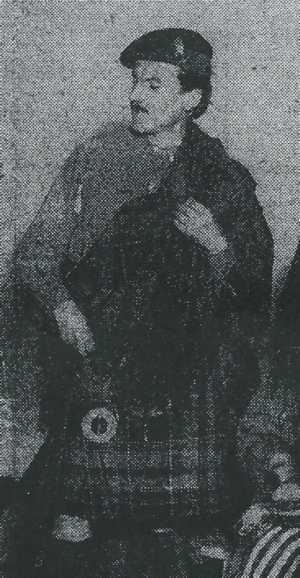 
Dr Arthur Geddes was a pioneer in the 1930s in the establishment of 'Festivals of Commemoration & Renewal'. An early Scottish 'nationalist', he was committed to recapturing the essence of Highland life through a 'Cairn of Song & Story' - what he called SongDramas. His most ambitious, which the 1745 Battle Trust is now planning to 'renew' at the suggestion of his daughters Marion and Claire for 2018, tells of The Tartan, that emblematic symbol of Scotland. For many of us today a tartan is a badge of Clan or Regimental loyalty but to Highlanders before 1745 it was what was "worn in cold and rain, dyed, spun, woven and blessed by the women of the house, a sacrament of home."
The SongDrama looks both to the traditional past, before the vicious Hanoverian Proscription, and to what the future held thereafter. It's not per se about the '45, rather the tragic consequences that Uprising occasioned for Highland life.
The first programme cover and press photo below are from the premiere of his The Spirit of the Tartan SongDrama presented in Edinburgh in 1932. It played to packed houses as it later did in the Jubilee Hall in Rangoon in 1935 [also covered & pictured below] under the direction, after some adaptation, of Rev. R.H.R. Liddell and the patronage of His Excellency The Governor of Burma and Lady Stephenson - very much with Arthur Geddes approval. It was again seemingly presented in London where the press cutting below appeared although no details of that venue have yet been traced.
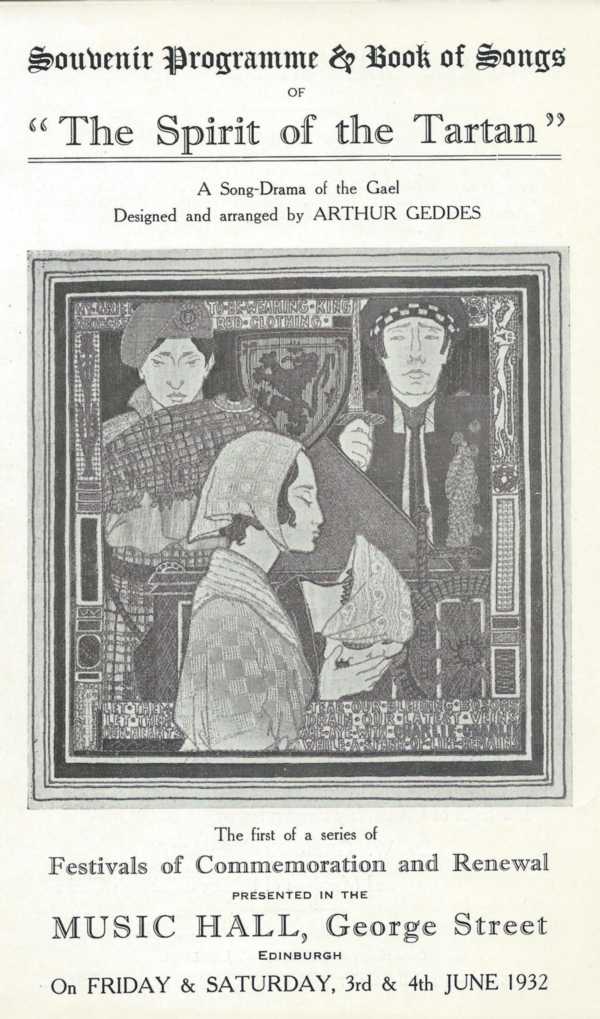
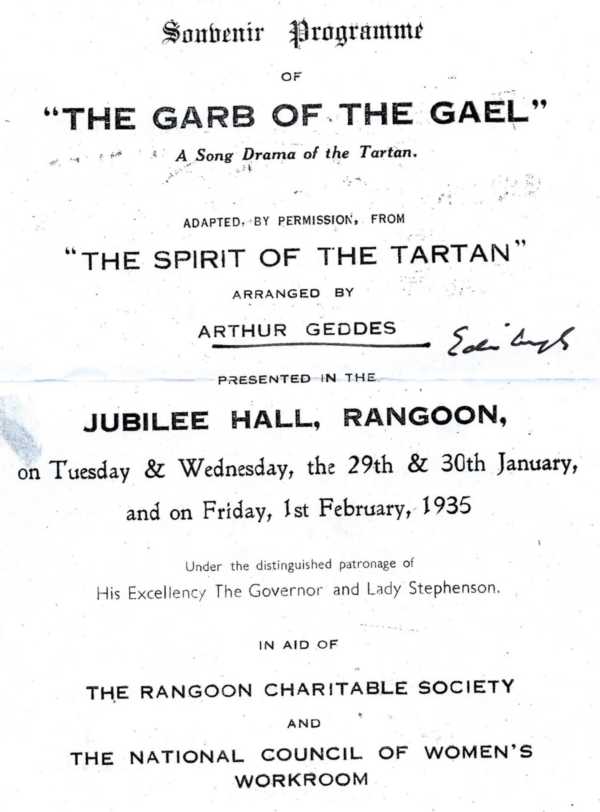 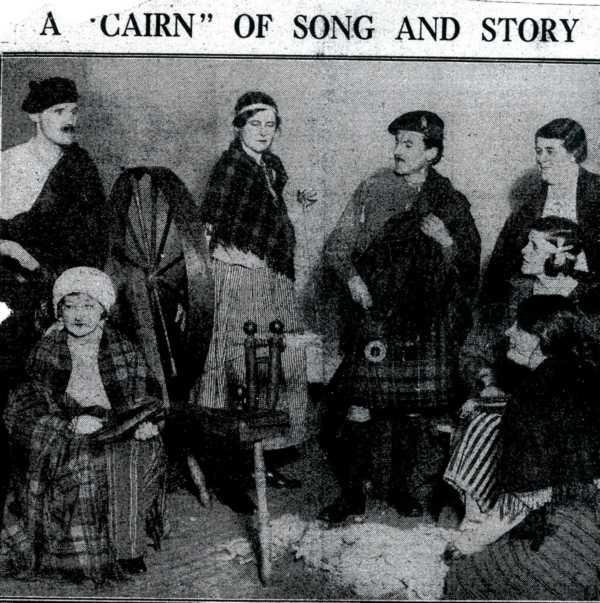
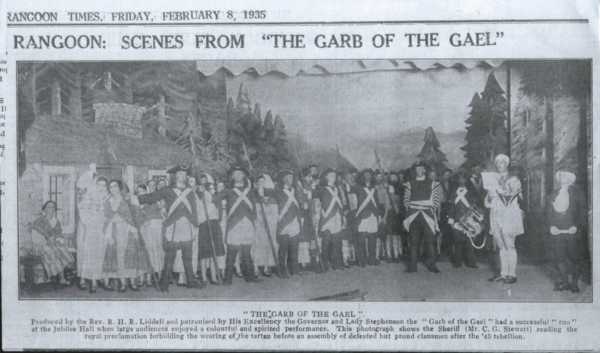
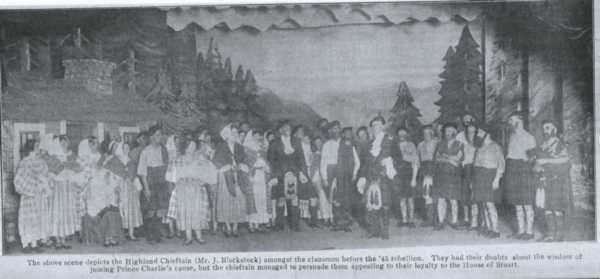
Dr Arthur Geddes was a human geographer and taught at Edinburgh University. He followed in the footsteps of his illustrious father Sir Patrick, living close by The Outlook Tower now Camera Obscura, and took the same intense interest Sir Patrick had in community. He travelled to India in the 1950s and studied sociology alongside his father there. His SongDrama drew on extensive research across the Highlands and he provided many translations of its songs to English from the Gaelic, collected in his two volume work Songs of Craig & Ben published in the 1950s.
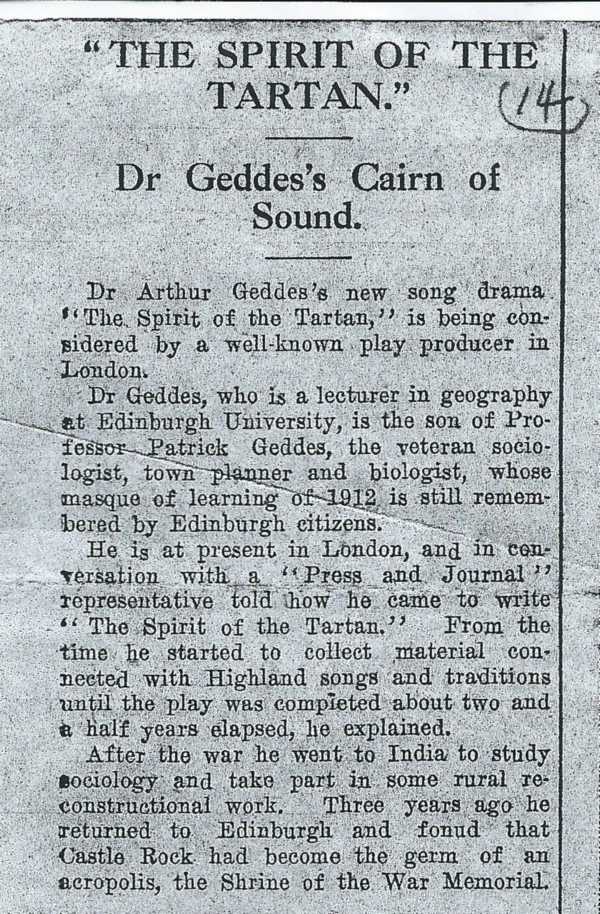 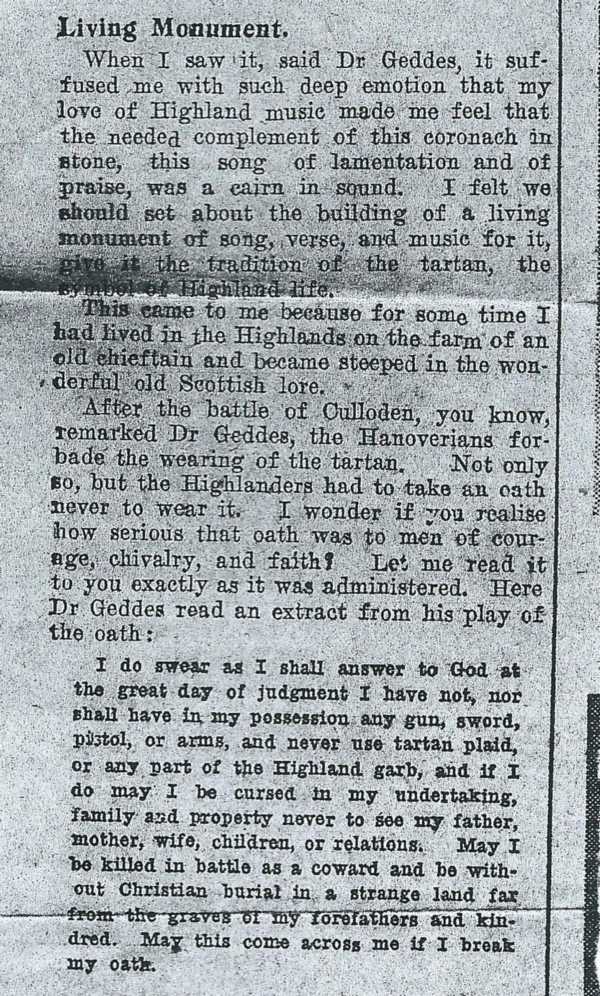 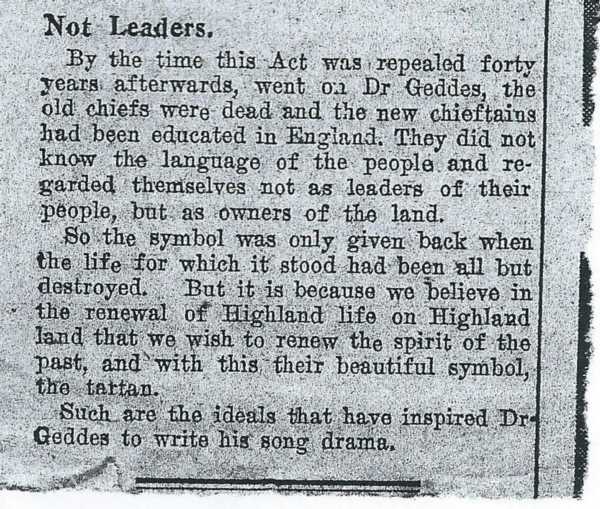
The Battle Trust's interest in Geddes' SongDrama was awoken when Marion and Claire Geddes, Arthur's daughters, made contact after seeing Sir Patrick's panel [below] in the Scottish Diaspora Tapestry, sending copies of Arthur's original typescript and extensive annotations on its context and performances. Not only was it the eventual failure of the Prince's Uprising, which had started so successfully at Prestonpans, that led to The Proscription of the Tartan. It was William Grant, Lord and Baron of Prestoungrange who, as Lord Advocate, was the individual responsible at Westminster for the passage of the Act in 1747.
Festivals of Commemoration and Renewal, as advocated by Arthur Geddes from the outset, have always been at the heart of the Battle Trust's Charter - our battle's legacy of song and poetry and literature is extraordinarily strong from Hey Johnnie Cope and the English National Anthem to Scott's Waverley. With generous support from Bord na Gaidhlig the Trust has also championed renewal of the Gaelic language in its signage.
Volunteers and Friends are invited to come out in support
To achieve today what Arthur Geddes achieved in the 1930s and 1950s is a challenge of course. It might even be argued effort should be made to use the original Gaelic rather than Arthur's fine translations. The Overture for strings with harp and flute, performed at the 1932 Presentations in Edinburgh, was specially composed by Ronald Kinloch Anderson - a name acclaimed globally for tartan to this day - but the score is yet to be traced.
2018 has been set as the target year for our Renewal. 21st century digital facilities are to hand. A CD and/or DVD can surely be crafted; the SongDrama might be presented at The Fringe; it might perhaps tour the Diaspora as the Tapestry already has; an AmDram Group might step forward to do justice to the Sprit of The Tartan in English and/or Gaelic. The future awaits.
If any of these notions, or others quite besides, appeal to any reader here please be in touch as soon as can be: waukin@battleofprestonpans1745.org
_________________________________________________________________________
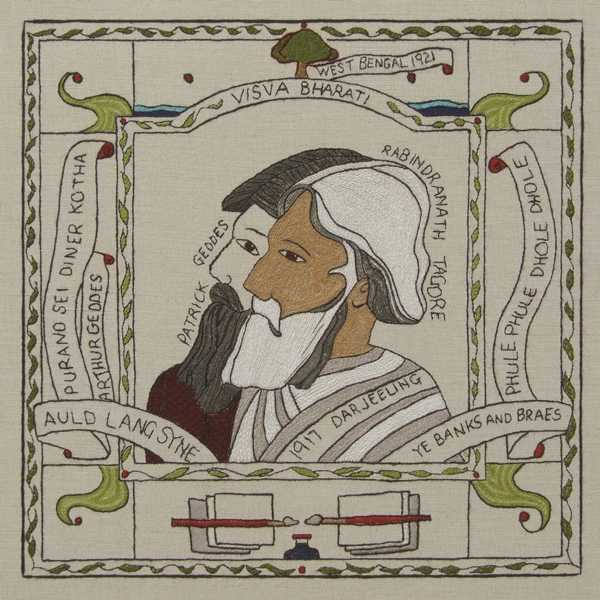
IN17 Geddes and Tagore
Stitchers: Trish Thornton, Liz Cuddihy, Liz Duke, Alison Horsley, Isobel Hutchins & Mary Macpherson
East and West meet in the close friendship and exchange of ideas between Patrick Geddes, the Scots polymath, and the Indian Nobel Laureate, Rabindranath Tagore. They met in India whilst the First World War was raging, and found common ground in shared ideas on education in harmony with one’s surroundings, inter-disciplinary studies, a sustainable environment, rural reconstruction and peace. Tagore invited Geddes to provide the plans for his International University, Visva-Bharati at Santiniktean, while Geddes invited Tagore to become President of the Indian College at Montpellier. Patrick Geddes’s son, Arthur Geddes spent two years teaching at Sriniketan. They stayed in touch until Geddes’s death in 1932.
IN17 Geddes agus Tagore
Tha an Taobh an Ear agus an Iar a’ coinneachadh ann an dlùth-dhàimh agus ag iomlaid bhunbheachdan eadar Pàdraig Geddes, an iomafhoghlamaiche à Alba, agus an Nobel Laureate ̀nnseanach, Rabindranath Tagore. Choinnich iad sna h-̀nnseachan nuair a bha a’ Chiad Chogadh aig àirde, agus lorg iad co-choitcheannas ann am bun-bheachdan co-roinnte mu fhoghlam ann an dàimh leis na tha mun cuairt, sgrùdaidhean eadarchuspaireil, àrainneachd sheasmhach, ath-thogail air an tuath agus śth. Thug Tagore cuireadh do Geddes planaichean a thoirt gu buil airson an Oilthigh Eadar-nàiseanta aige, Visva-Bharati aig Santiniktean, agus thug Geddes cuireadh do Tagore a bhith na Cheann-suidhe air a’ Cholaiste ̀nnseanach aig Montpellier. Chuir Artair, mac Phàdraig Geddes, dà bhliadhna seachad a’ teagasg ann an Sriniketan. Chùm iad an dàimh eatarra a’ dol gus an do bhàsaich Geddes ann an 1932.
Published Date: December 15th 2016
|





